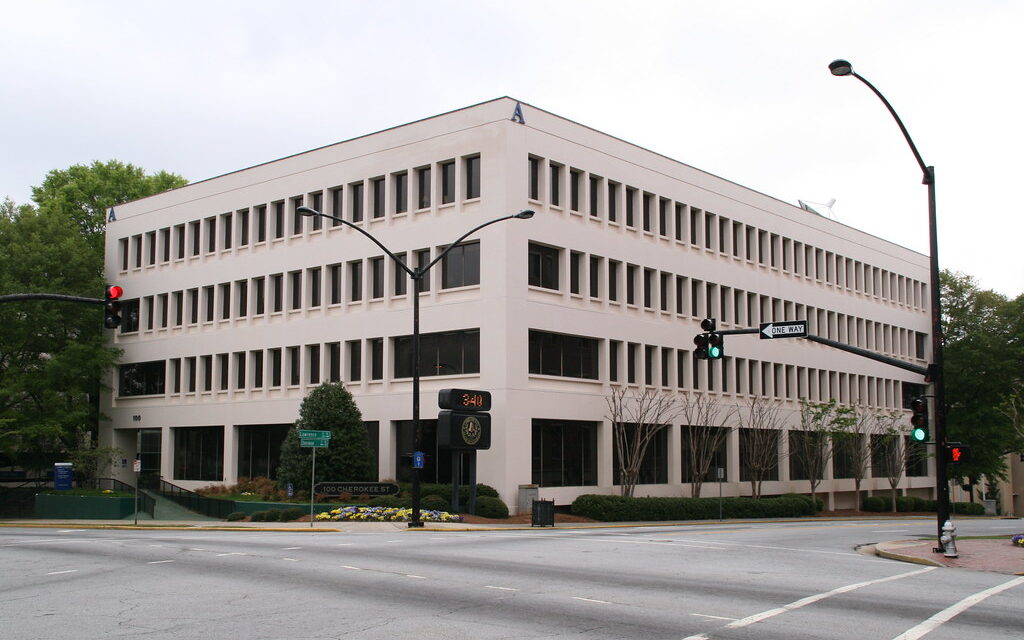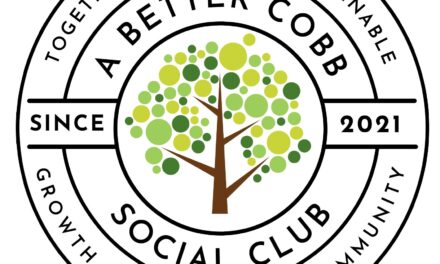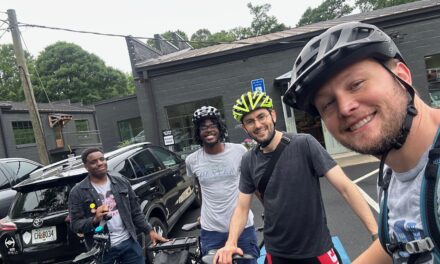Our Current Situation
The housing crisis is one of the biggest issues that we face today as a society, yet it’s also the issue where you can have the biggest impact. The way that our communities build housing is regulated almost entirely by county or city zoning codes which means that the best way to actively create change is simply by showing up to meetings and letting your elected officials know that this is an important issue.
At the Cobb Board of Commissioners meeting on July 22nd, we plan to do just that, and we want your support. The meeting will take place at 7pm (but show up a little early) at 100 Cherokee St. in Downtown Marietta.
This issue affects everybody. Whether you’re young and concerned about your future chances of owning a home, middle-aged and worried about having the right housing choices for a growing family, or older and scared about the lack of affordable senior living, we all have a role to play in advocating for smarter housing policies.
Here are some of the policy changes we plan to advocate for in the planned UDC (Unified Development Code) zoning revamp happening in 2026:
Expanding Single-Family Housing Options
By allowing more diverse forms of housing families within our single-family neighborhoods, we can provide more housing choices without dramatically altering the character of our neighborhoods. This means allowing townhouses, rowhomes, and ADUs everywhere in our county zoned for single-family use.
This doesn’t mean that your neighborhood is going to be overrun with new developments, so don’t freak out. Currently most neighborhoods within Cobb County have minimum lot sizes that already allow for 2-3 UPA (units per acre). The smallest lot size currently allowed for single-family homes is 1 / 3.5 acres or 12,000 square feet (a 3.5 UPA max), and we propose implementing that as the minimum lot size for everywhere within Cobb County.
Note that while it is technically possible to build the maximum UPA, the average UPA will be significantly lower. Obviously, this doesn’t lead to an immediate increase to the density of our neighborhoods, but it simply creates the potential to build additional homes that would gently increase density as needed.
Making Starter Homes More Affordable
Despite a desperate need for starter homes across the county, it’s difficult for young would-be homeowners to find a small home that is affordable enough to meet their needs which negatively impacts everyone. By reducing some of the burdensome restrictions that leave lots sitting empty or underutilized, we can reduce some of the costs associated with building a home, passing on savings to buyers.
This means reducing minimum requirements on square footage, setbacks, and minimum lot sizes (as previously mentioned) in order to create the conditions necessary to make it profitable for developers to build starter homes.
The benefits of adding additional starter homes are numerous for both residents and the county. Data shows that 69.1% of Cobb workers commute into the county for work and 62.6% of residents commute outside the county according to https://onthemap.ces.census.gov/. By making homes affordable for said workers will increase community engagement as more people live where they work, reduce traffic as commute times decrease, and generate economic growth as the county grows.
Allowing For Mixed-Use Development
One of the best ways to improve land use anywhere is by intertwining the places where people live, work, and play by incentivizing the development of communities with more diverse land uses, especially along corridors that already have higher density.
Besides simply gently increasing density in our single-family neighborhoods, parts of the county that already have more dense land use can benefit from Transit Oriented Development. By allowing areas that are served by transit to densify by allowing residential developments to be combined with commercial developments, we can better use one of the most crucial underutilized resources in our toolbox: pre-existing developments. Whether it’s something as simple as allowing an apartment to be built above street-level shops, converting unused office/commercial space into housing, or running small businesses out of your home, there’s something to be said for better utilizing what we already have.
Completely restricting residential and commercial uses from mixing is unnatural and more of a reflection of what 1950’s and 1960’s city planners thought was best rather than what people actually want. Rolling these changes out in transit corridors is a great first step to showing the county what’s possible before potentially expanding.
And don’t worry, this doesn’t mean a liquor store across the street or a nightclub where your neighbor’s house once was. The character of existing single-family neighborhoods isn’t going to magically disappear overnight, and if problems arise, we’re not exactly changing the constitution here.
Increasing Density In New Developments
The reality of the situation is, much of Cobb is already developed, and building enough new housing units is going to take large developments with land that you’re probably not going to find in East Cobb, Smyrna, and Marietta. In growing parts of the county, however, we need to be allowing higher density housing.
To meet this goal, we advocate for allowing multiplexes and condos (all 6 UPA or less) in every new large-scale development by default (a combination of RA-6 and Rf-8). Essentially, this boils down to allowing future flexibility in all developments even if they are primarily single-family homes while giving developers the possibility to build a wide variety of housing choices as needed.
Manageable Goals To Works Towards
Whether we want to admit it or not, the housing crisis isn’t going away. Whether you’re an existing homeowner who is concerned about the potential impacts of new developments, a future homeowner looking for affordable options, or simply someone who wants to see your community thrive, these plans are a great place to start.
Most importantly, let’s solve this together. I’d like to think that most people truly care about helping their community and are willing to come to the table to talk about our future. If you’re ready to get started advocating right away, or you have concerns you’d like to have a discussion about, we invite you to attend the July 22nd commissioner meeting and start the conversation.





